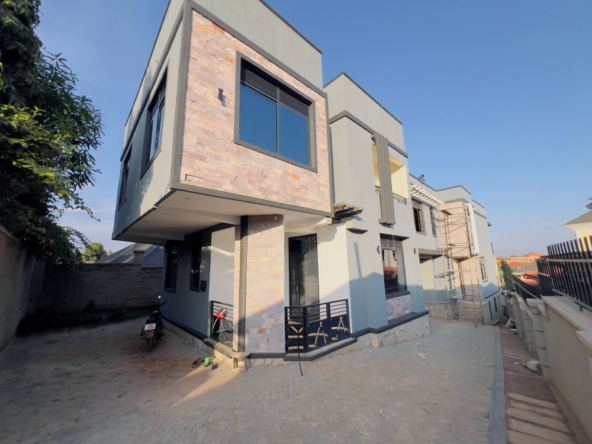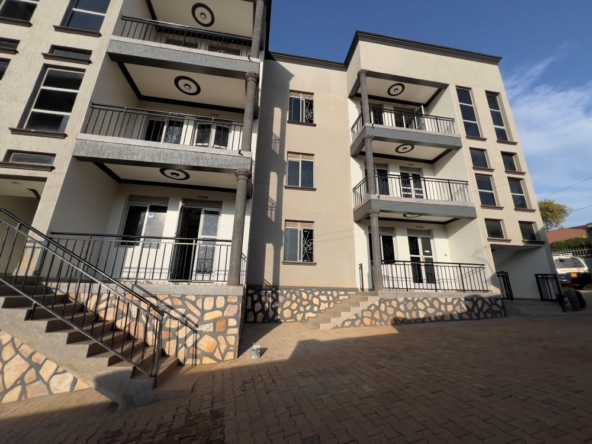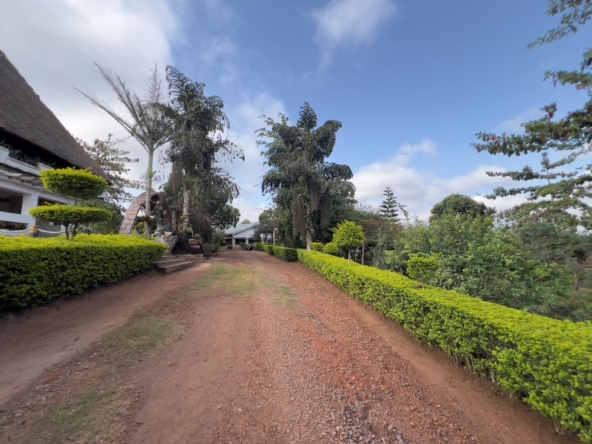The mortgage application process in Uganda
In order to help give you an understanding of how the mortgage process works, below is a basic timeline of the things you’ll need to apply for a mortgage:
Find the best lender. A good broker has the training and experience to search the whole market to find you the best mortgage products from lenders available to you specifically. They will complete the mortgage application form on your behalf and manage the property purchase or remortgage throughout. They will explain everything thoroughly from the outset and ensure that the whole process runs smoothly to completion and beyond. If your circumstances are more complex (you have a bad credit history or debts, for example), a truly whole-of-market broker will know which lenders to place you with.
Get it agreed in principle. This step is predicated on the assumption that you have a rough idea of the property value. If you just want to know how much you can borrow and have no idea of purchase price, make a quick enquiry and an advisor can give you an idea – Lenders grant an approved decision in principle (also called a mortgage promise or agreement in principle – AIP). An agreement in principle is given on the assumption that all the details given to the lender is supported by the relevant documents needed to verify address, ID, income, etc.
Find the property you want to purchase and a solicitor. This should be done at your own pace, it’s important that you make a good decision. Armed with your AIP ( mortgage promise or agreement in principle) – you can make an offer knowing you have the financial backing necessary to buy the property. It is recommended that you don’t pay for any fees until the valuation is back in and approved, because if there is something wrong with the property that prevents you from proceeding, or puts you off wanting to buy it, any work carried out by solicitors at this point is not likely to be refunded.
Instruct a valuation on the property. You won’t need to do an independent valuation by yourself, the lender will always want to value the property themselves as a minimum requirement to make sure the property is worth the value you have offered. They can usually arrange for this valuation to be upgraded to homebuyer report or a full structural survey for you, or you can instruct your own additional survey.
Mortgage is offered. If the valuation is marked as suitable for mortgage purposes by the surveyor, and all relevant documents are approved (proof of ID, income and address etc.), a formal written mortgage offer will be issued to you and your solicitor. Typically, you can obtain an offer within a couple of weeks, depending on how long it takes to instruct and book the valuation, and is often much quicker. Ensure that you have all relevant documents ready if you want to process your mortgage fast.
Solicitor Instruction. Now is the best time to pay the upfront fees to your solicitor and get the ball rolling on the various legal searches and drawing up the necessary contracts. This process can be the most time consuming element of a purchase, but can be relatively quick if you are applying for a remortgage.
Exchange of contracts & completion. Once the solicitors have drawn up the necessary contracts and received all the necessary searches back from the local authority and various other sources, you will be asked to sign the contracts and legally exchange them with the vendor. This will formally confirm your obligation to buy, and the vendor’s obligation to sell. Once this has happened the money can be requested from the lender and once in place can prompt completion. This usually takes a week, however it is possible to exchange and complete same-day if circumstances allow. Once it’s all compete you are given the keys and can move in, or if remortgaging – the money is transferred to the necessary parties.
What you need for a mortgage application
The document you will need include, but are not limited to:
- Proof of ID (passport/drivers license)
- Proof of address (dated in last 3 months: utility bill, credit card statement or council tax statement – not mobile bill)
- Proof of earnings (last 3 months pay slips )
- Full last 3 months bank statements for ALL active accounts
- Proof of deposit (savings statement or gifted deposit letter)
- Credit reports
- New property details (address, construction material, approximate year of build, detachment type, garage or number of parking spaces, number of bedrooms/bathrooms/kitchens/other rooms)
- Bank statements: Following recent Mortgage Market Review updates, lenders now request all bank statements to meet the following criteria:
- Identifiable to you – must have your name, address, account number and bank name on
Credit reports
If you’ve had adverse credit in the past, a good mortgage advisor will want to review your credit reports before doing anything. Doing so will provide them with the same data lenders will be using to assess the application, in terms of the specifics of each credit issue.
With the right market knowledge, the best brokers will do their homework before making any sort of application to a lender, and can match your credit history with the criteria of the right lenders. Whenever an initial decision in principle is made with a lender, they perform a credit search on your file.
What will mortgage providers look for in my application
Income: In order to calculate the affordability of the mortgage you are applying for, lenders will need to establish what your household income is. Every lender is different in;
What they ask for
- Property suitability: Lenders want to be comfortable that your property will act as suitable security, because it is this they will have to sell to recoup losses if you defaulted on the mortgage. Each lender has their own opinion on what is acceptable, some will consider properties of non-standard construction and some will not, some will accept new build flats, some don’t.
- Deposit source: Where your deposit is coming from is important. Saving a deposit yourself demonstrates you can be careful and sensible with your money, and that you live within your means. This will stand you in good stead with a lender who is likely to deem you much lower risk than someone always in their overdraft with credit card debt, buying a property with a deposit gifted from parents.
- Credit history: Whether you have had any late payments, mortgage arrears, defaults, repossessions, bankruptcies, Debt management plans etc, lenders will want to know the date of registration, the amounts, the date of settlement and, sometimes, underwriters will want to know the reasons and background to these issues. The dates are usually the most important piece of information, as most lenders set guidelines on how recent an issue can be deemed acceptable. The above factors can all influence which lender will consider your application – it’s not just a case of passing credit score.
- Self-employed and buy-to-let mortgage applications: If you’re self-employed or you’re looking for a buy-to-let mortgage. Those who work in a freelance capacity and looking for a buy-to-let mortgage may face different hurdles to those in a full-time position. Most buy-to-let lenders will require applicants to have their own income, to evidence that they would be able to cover mortgage payments in periods of no rent.
Knowing when to apply for a mortgage can be key to getting the home you most want. It’s always best to know what mortgage you will be able to get before setting your heart on a property may not be able to get a mortgage on. So, our advice is to get the mortgage in place first! Most borrowers will need to find a mortgage before finding a property – how will you know you are able to buy it, and what the borrowing limits you can afford are?
There is so much involved in applying for a mortgage, including getting it agreed in principle, obtaining a valuation and instructing the right solicitor, that applying before you’ve found the right house is not only a time saver but also saves you a lot of stress and, potentially, money.
Most people opt to get a decision in principle from a lender to give them the confidence before they start making offers, and this a sensible approach. Having proof of funds at the time of applications puts you in a stronger buying position, and there’s nothing worse than finding the dream home and not being able to get the finance to buy it.
A mortgage in principle agreement is a quasi-promise from the lender that they will lend you the money , provided the information you have given is accurate and you can supply the appropriate documentation they require. However, it doesn’t guarantee borrowing, as the majority of lenders will underwrite the case at the time a full application is made, and they can still decline the application at this point despite the initial agreement.











